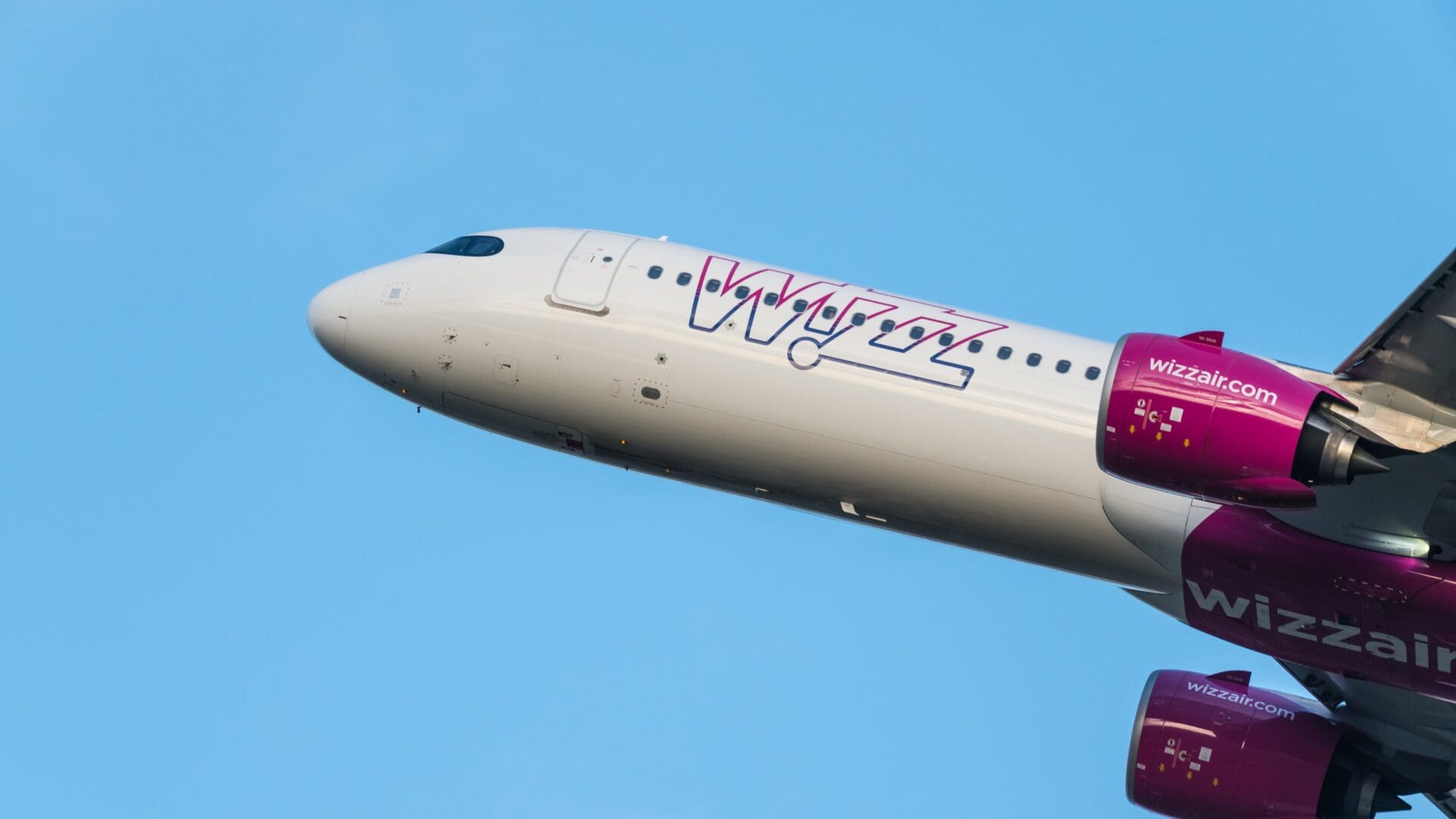Wizz Air’s new Airbus A321neo model is joining the London–Luton airport base, the Hungarian airline announced. The model is currently capable of flying with up to 50 per cent sustainable aviation fuel, while reducing the noise footprint by 50 per cent, consuming 20 per cent less fuel, and emitting 20 per cent less carbon dioxide and 50 per cent less nitrogen oxide.
The two-hundredth aircraft has arrived at Wizz Air, reducing the average age of the airline’s fleet to 4.2 years. The new Airbus A321neo model is joining the London–Luton airport base, as announced in the company’s statement.
The company highlighted that Airbus A321neo aircraft offer significant environmental benefits due to their modern flight technology solutions. Thanks to the young fleet and modern aircraft,
Wizz Air’s carbon dioxide emissions were 6.8 per cent lower in 2023 than the previous year.
The average carbon emissions per passenger kilometre of 51.5 grams represent the airline’s lowest annual result to date, and they are committed to further reducing carbon intensity by 25 per cent by 2030. ‘We invest exclusively in the latest and best technology, and the Airbus A321neo ensures that our fleet remains modern and comfortable while helping us meet our environmental commitments,’ said Zsuzsa Trubek, Wizz Air’s communications manager. She added that the new aircraft also supports the company’s goal of flying as many travellers as possible to the most exciting destinations across Europe, all at an affordable price.
According to the airline, growth is not stopping here: following the record number of passengers in 2023, they are expanding their network further. Wizz Air already has the largest Airbus A321neo order in Europe, and plans to acquire an additional 300 aircraft by the end of the decade. Although Wizz Air carried more than 4.7 million passengers in January, an increase of 14.2 per cent compared to January last year, aircraft utilization decreased by 4 percentage points to 82 per cent, as the airline increased its capacity by 20 per cent annually, to nearly 5.8 million seats.
Wizz Air’s carbon dioxide emissions were 51.8 grams per passenger kilometre over the past 12 months, the management says this is the lowest value among airlines. However, January emissions increased annually by 7.2 per cent to 54.9 grams. The company’s shares rose by 9 per cent to 2163 pence on the London stock exchange on the news.
Related articles:
Sources: Hungarian Conservative/Wizz Air/Világgazdaság








